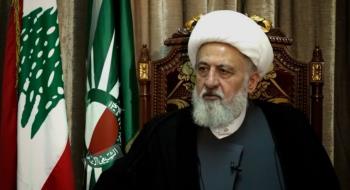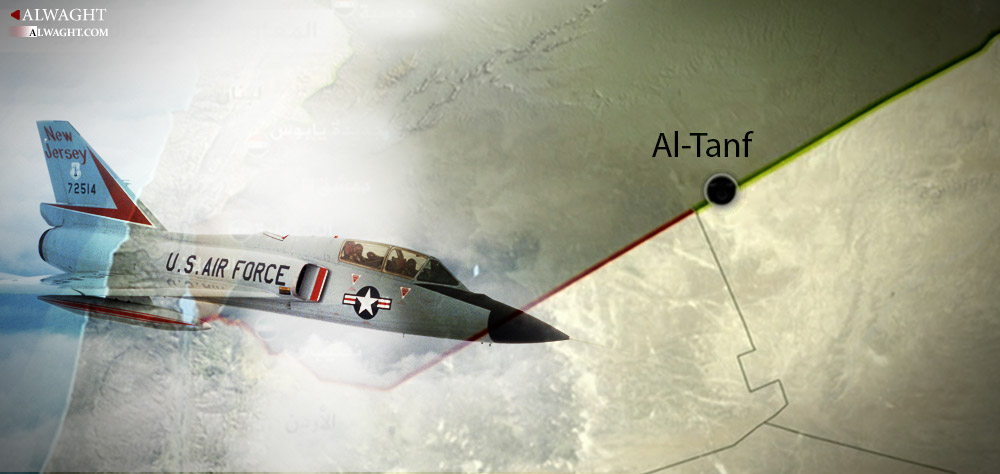Alwaght- Last Tuesday, the US fighter jets bombed the Syrian forces near al-Tanf border crossing, the second attack of this type after the American warplanes on May 18 hit convoy of Syrian army and allies that were advancing towards the same border path on the Syrian-Iraqi borders.
The US-led coalition has justified the strikes by arguing that the Syrian government’s forces entered a de-confliction zone, where the American forces training units of the Syrian armed opposition fighters.
The Tuesday attack made it clear that the American military actions on the Syrian government have set to rise, moving in line with the recent wave of tough stances taken against Damascus by the American President Donald Trump. According to a report published by the US Central Command (CENTCOM), 60 percent of the casualties caused by the air raids have taken place during the first three months of the Trump administration.
Earlier, in an interview Trump told the New York Times that fighting the Syrian President Basher al-Assad and the ISIS terrorist group at the same time was “idiocy”. However, the Department of Defense has announced that the US measures against the advancing forces in al-Tanf region was part of the formerly pursued policy. It further called nature of conflict “uncertain”, with every incident in the conflict expectable.
Located on a triangular border area between Syria, Iraq, and Jordan, the al-Tanf border route is of strategic significance for all actors. The crossing links the Iraqi capital Baghdad to the Syrian capital Damascus as it is located on an international highway between the two countries. Logistically, if the area is recaptured by the Syrian government forces, they can open a direct ground access to the common borders with the neighboring Iraq, facilitating easier transportation of backing troops and military equipment for the already-engaged forces. Strategically, retaking it amounts to a working blow to the Syrian opposition and can strengthen the Damascus allies.
Hosting one of the three Syrian border crossings with Iraq, al-Tanf is in the desert Badia region which only has scattered population. The Syrian Foreign Minister Walid Muallem in early May marked the region as of military priority for the Syrian government. The US-backed Syrian opposition militants took in March 2016 the border crossing from ISIS terrorists. The opposition has been holding the area as a launching pad for operations to retake Abu Kamal, a town located on the Syrian-Iraqi border and held by the ISIS terrorists.
The pro-Damascus Resistance forces have made considerable progresses in the region, and the US airstrikes are coming to stifle further advances towards the border. The pro-Syrian forces have been approaching the region from three directions. The American air assaults are also meant to strengthen the opposition militants. The analysts argue that such US attack negatively impacts the underway attempts for a political settlement for the now-six-year-old crisis since the anti-government militants get the assurance that Washington is standing by them and so they can optimistically continue the war.
The attack is challenged in terms of the international law. Syria has questioned the justification that the raid came in self-defense and so it can complain to the United Nations Security Council.
What is clear is that the American intervention in Syria started in 2014 under the cover of humanitarian drives and fighting the terrorism, but in reality it is violating the Syrian sovereignty. To put it differently, political motivations have driven the last four years' US intervention in Syria.
The American military presence in Syria by itself is illegal because Washington did not get any permission from the legitimate Syrian government or the UNSC. According to the UN charter in article 2(4), any humanitarian interventions are considered legal if they receive no authorization from the UNSC, though this article by itself carries a paradox: starting a war to end a war.
The Americans justify air raids as self-defense as the Syrian forces, backed by the allied parties, have been advancing towards the border area and so posed threats to the American forces stationed there. However, from the international law's point of view, the strikes are totally illegal for a couple of reasons:
First, any legitimate self-defense makes sense when the opposite side launches attacks. This is while the Syrian forces did not conduct any offensive against the American forces operating in the area.
Second, if the Americans justify their attacks as a preemptive response to the possible threats posed by the Syrian forces, this cannot be convincing because the international law does not recognize the right for preemptive self-defense. Moreover, any preemptive self-defense is dependent on the legitimacy of the military intervention. The US sent forces to Syria ignoring the UNSC authorization needed for any military intervention in another country or the permission from the Syrian government which is internationally and domestically recognized and stable. So the American military deployment violates the Syrian sovereignty, and the US reserves no right to attack others as a self-defense move. In fact, it is the Syrian forces that according to the article 51 of the UN charter reserve the right to defense themselves against the occupying forces.
According to the international law, the US forces are invaders in Syria and can be prosecuted internationally. The international organizations are supposed to back the Syrian narrative and condemn the US. But their records show that they are inefficient as they are under the yoke of the overbearing and arrogant powers like the US.



























